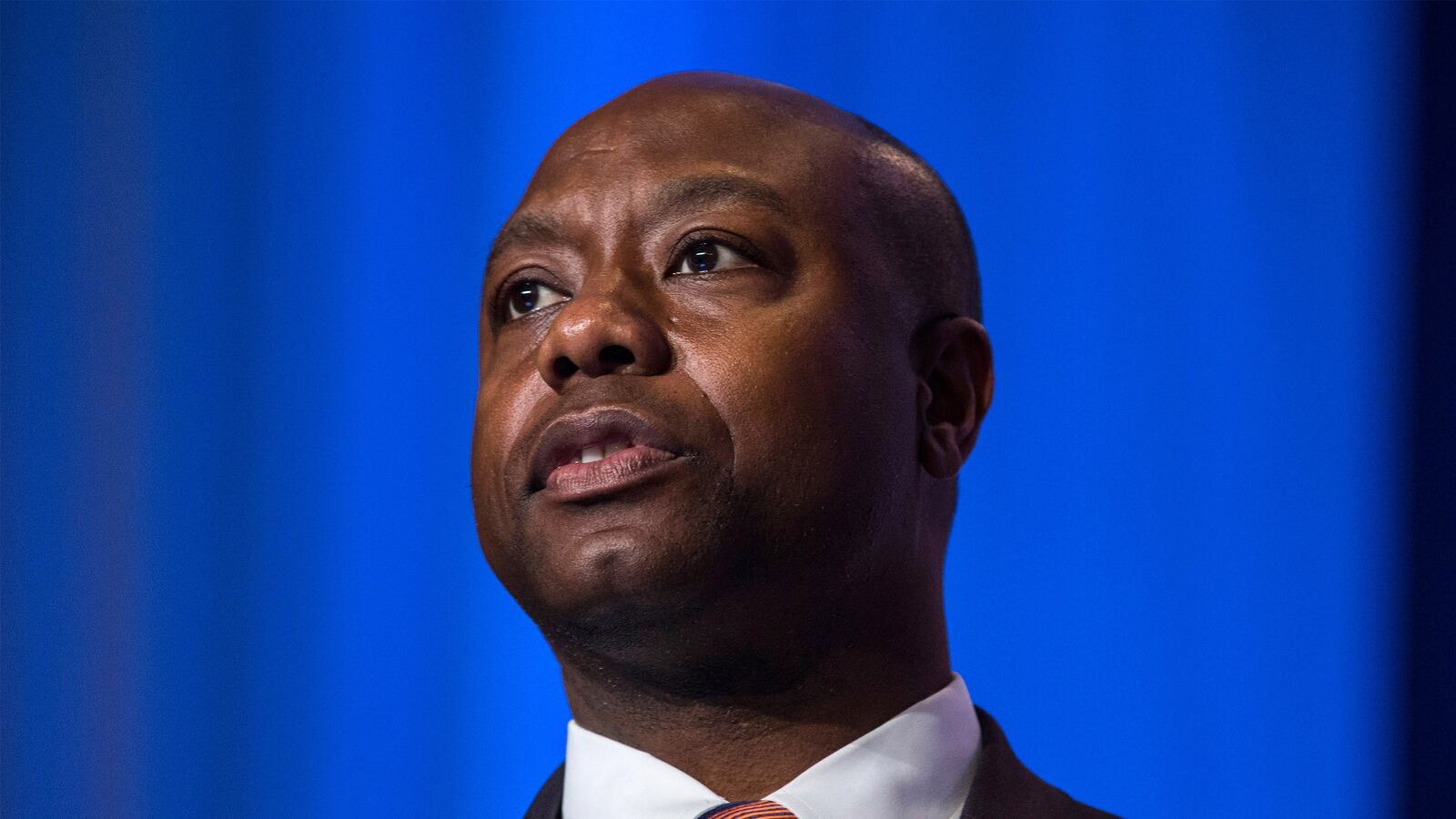Of all the lawmakers in the Senate, Republican Senator Tim Scott is the best positioned to understand what is happening in the minds of the rioters and looters in Baltimore this week. He’s one of the rare politicians to actually understand what it’s like to grow up young, black and male.
“I won’t say I can understand [the looters] specifically. But generically, I certainly understand what a hapless, hopeless person does. You create chaos because you’re living in chaos… if you’re hopeless you do things that seem absolutely inconsistent with logic. You destroy your own communities,” Scott said.
GALLERY: Scenes From the Chaos in Baltimore (PHOTOS)

Like the young West Baltimore high schoolers who sought out violence as a means to vent frustrations against law enforcement, Scott grew up in poverty in North Charleston, South Carolina. He flunked out of high school as a freshman—something he doubts any of his fellow senators have. He buried two of his closest friends in his 20s. Another sought a fast way to cash through drugs and spent 85 months in a federal penitentiary.
“It appears that my personal experience, fortunately and unfortunately, matches the devastations that we’re seeing around the country right now. And that’s a unique experience here on Capitol Hill,” Scott said Tuesday evening, as the National Guard descended upon Charm City to restore order.
He continued, “Hapless and hopeless people seem to reside in areas of high unemployment, low educational performances, and steeped in poverty. Having been one of the kids that I’m talking about, and having lived in some challenging situations and circumstances… I think I get it.”
He has no easy answer to the chaos and the looting and the violence that threatens Baltimore, except that Congress needs to seriously address the “systemic nature of poverty.”
Scott has been championing what he calls an “opportunity agenda” to address the root causes of poverty, something a lot of Republicans pay lip service to but rarely work on in practice.
“From my perspective, we do need to look at it from a root-up approach. One of the reasons I’ve championed the opportunity agenda through the last several years in Congresses… hapless, hopeless people don’t do well in school… in the poor ZIP Codes, they too often have under-performing schools,” Scott said, plugging his support of school choice. “You look for the DNA of hope—it starts with the magic of education.”
So he’s offered amendments on school choice, workforce readiness, and apprentice programs. “There is no way around it. This is ground zero for the fight around poverty,” he said. But perhaps like the impoverished looters in Baltimore—no one is listening… until there’s drama.
“I have stayed on the opportunity agenda,” he said. But he “can’t get anyone to pay attention to it, except when the crisis occurs… Is there any frustration that we haven’t moved faster? Yeah.”
Most recently, Scott has requested a hearing that he expects will take place in early June, to discuss federal body camera laws, and the possibility of providing federal grants so that local law enforcement can purchase the cameras. (He does not support federal, mandatory body camera laws, however.)
He ticks off the statistics of body camera technology: Body cameras lead to a 90 percent drop in complaints against law enforcement officials, and a 60 percent drop in the cases where force is used of the police. Scott points to the death of South Carolinian Walter Scott, who was shot in the back while running from a white police officer, and Eric Garner, whose famous last words, “I can’t breathe,” became the basis for a civil rights chant.
“Without the video evidence, there is no debate… videos are, frankly, perhaps the most powerful tool” to bring injustice to light, Scott told a small group of reporters Tuesday. “What we’re seeing today is not a new situation. It’s that technology has brought the situation to light.”
Since unrest erupted in Ferguson over the shooting of Michael Brown in August 2014, Congress has been objectively ineffectual. No laws have been passed to reform the law which allows local law enforcement to purchase military equipment, despite some initial hope. In fact, no laws targeting the cold relationship between minorities and law enforcement have been passed at all.
For Scott, the problems of racial tension are “not a red-blue issue.” It’s not President Obama’s fault. It’s a failure to lead nationally, he says, in tackling the root causes of poverty.
“These young kids today face the most exciting future… I don’t think they know it exists,” Scott said. “Too many of them at 20 have thrown away hope. I think that’s a leadership problem—not in Baltimore, but nationally. We have to do a better job of presenting and selling the journey of the American dream.”





